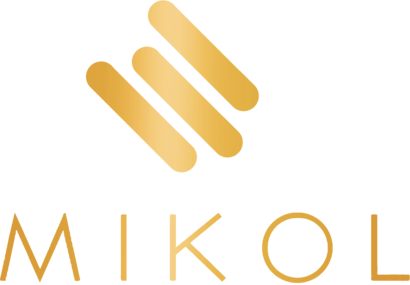
Supply Chain Management: Sourcing Raw Materials for Chemical Production
The initial step of sourcing raw materials is a critical component that profoundly influences the entire supply chain management system. This phase requires meticulous planning, strategic negotiation, and a comprehensive understanding of global markets to ensure the procurement of high-quality raw materials at competitive prices. It's a complex balancing act between maintaining cost-effectiveness and adhering to stringent quality standards, amidst fluctuating market conditions and unpredictable global events that can disrupt supply chains. Effective management of this process is paramount, as the availability, cost, and quality of raw materials directly impact production timelines, product quality, and ultimately, customer satisfaction. In navigating this challenging landscape, companies must employ robust sourcing strategies, leverage technological advancements for market analysis, and foster strong relationships with reliable suppliers. This foundational aspect of chemical production not only ensures operational efficiency and product excellence but also upholds environmental sustainability and ethical sourcing practices, reflecting a company’s commitment to corporate social responsibility.

Charting the Chemical Supply Chain Landscape
Understanding the supply chain landscape of the chemical industry involves recognizing the complex network of suppliers, manufacturers, distributors, and end-users that interact in a global marketplace. Central to maintaining this delicate balance is the procurement of high-quality raw materials essential for production. For instance, a quality Phenibut HCL powder supplier plays a pivotal role in pharmaceutical manufacturing, providing a key ingredient for a range of medications and supplements. Sourcing from reliable suppliers ensures that the end products meet stringent regulatory standards and consumer expectations for quality and safety. Navigating this landscape requires strategic partnerships and thorough due diligence to mitigate risks such as supply disruptions, price volatility, and compliance issues. By mastering these challenges, companies can secure their position in the market, optimize their operations, and contribute to the overall resilience and sustainability of the chemical industry as a whole.
The Quest for Quality and Consistency
In the world of chemicals, the quality and consistency of products stand as paramount pillars that cannot be compromised. Variability in the quality of raw materials can unleash a cascade of detrimental effects on downstream processes, ultimately compromising the integrity of the final product and, consequently, the satisfaction of the end customer. In this relentless pursuit of excellence, suppliers transcend their traditional roles, evolving into strategic partners. They share a unified mission with manufacturers to drive innovation and uphold unwaveringly high standards across the board. The cornerstone of fostering and maintaining this symbiotic relationship lies in ensuring crystal-clear contractual agreements, establishing robust and open lines of communication, and dedicating continuous effort towards nurturing supplier relationships. Only through these concerted efforts can the industry hope to sustain the high level of product quality and consistency that it strives for.
Sustainability’s Swipe at the Supply Chain
The global push for sustainability is compelling the chemical industry to overhaul its supply chain strategies. This shift is driven by a heightened focus on ethical sourcing, minimizing environmental impact, and aggressively reducing carbon emissions. Companies are increasingly turning to bio-based raw materials and renewable energy sources, such as solar and wind power, to replace traditional fossil fuels. Moreover, the adoption of circular economy practices is transforming the way materials are sourced, used, and recycled, ensuring that waste is minimized and resources are used more efficiently.
Industry leaders are coming to understand that adopting sustainable sourcing methods is not just a matter of ethical responsibility but a strategic move that offers a significant competitive edge. As consumer awareness grows, there is a rising demand for products that not only meet high-quality standards but also come with a clear traceability of their environmental credentials. This shift in consumer preference is pushing companies to innovate and rethink their operational and production processes to align with the principles of sustainability, thereby making a positive impact on the planet while meeting the evolving needs of their customers.
E-procurement and the Digital Revolution
The digital revolution is fundamentally transforming the chemical supply chain, introducing a new era of efficiency and visibility. E-procurement platforms are revolutionizing how orders are placed and processed, enabling seamless transactions and reducing manual errors. AI-driven insights are allowing for sophisticated analysis of data patterns, predicting future demand with higher accuracy and enabling proactive adjustments. Furthermore, blockchain technology is enhancing security and transparency, providing an immutable ledger for transactions that ensures trust and reliability among participants.
These technological advancements empower supply chain managers to monitor inventory levels with granular detail, foresee demand with greater accuracy, and streamline purchasing processes like never before. This digital toolkit enables the identification of inefficiencies and the optimization of operations, leading to significant cost savings and reduced waste. The result is a supply chain that is not only leaner and more cost-effective but also remarkably agile, capable of adapting to market shifts and disruptions with unprecedented speed. The digital revolution in the chemical industry is not just changing the game; it's setting a new standard for operational excellence.
Weathering the Storms
The chemical industry has long been familiar with facing disruption, whether it stems from geopolitical events that unsettle markets, natural disasters that interrupt supply chains, or pandemics that halt global operations. The capability to withstand these unpredictable storms significantly depends on comprehensive resilience planning, which includes diversification of suppliers to avoid dependence on a single source, and the implementation of scenario-based risk management strategies to prepare for a variety of outcomes. Moreover, the adoption of advanced technologies plays a crucial role. Real-time tracking systems offer up-to-the-minute updates on logistics and supply chain status, while predictive analytics can forecast potential disruptions before they occur. Together, these strategies enable the formulation of effective contingency plans. By anticipating and planning for these disruptions, the industry can ensure that operations can continue, even if it means operating under altered conditions. This proactive approach not only mitigates risks but also positions companies to recover more swiftly and efficiently from unforeseen challenges.

The sourcing of raw materials in the chemical industry is entering a new era, one marked by unprecedented challenges and remarkable opportunities. By weaving sustainability, technology, and strategic partnerships into the supply chain fabric, companies can pave a path to long-term success. Supply chain professionals who navigate this intricate web with innovation and resilience will ensure a steady flow of essential materials that underpin our modern way of life. It is not simply managing a chain but rather orchestrating a symphony of elements to bring harmony to a complex world—much like the very products they help to create.
Leave a comment
Comments will be approved before showing up.



